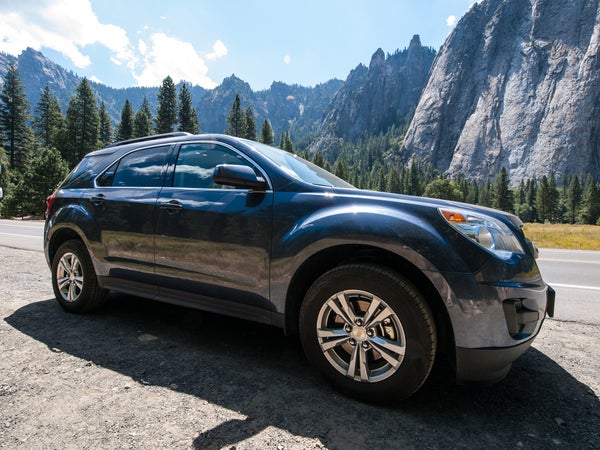Automakers are ramping up lobbying efforts ahead of a key midterm review of the Obama administration's fuel efficiency standards for cars.
Unexpected shortfalls in average fuel economy performance, brought about by low oil prices, have sparked fierce debate among regulators, environmentalists and auto industry representatives. The flare-up comes before the important review of the economy standards spurs potential decisions that could strengthen or weaken the rules that determine how far cars can travel on a gallon of gas.
Everyone is waiting for the release of a technical analysis by the National Highway Traffic Safety Administration and U.S. EPA to provide answers about the standards' performance. The document is expected to be released as early as today.
On supporting science journalism
If you're enjoying this article, consider supporting our award-winning journalism by subscribing. By purchasing a subscription you are helping to ensure the future of impactful stories about the discoveries and ideas shaping our world today.
The report kicks off a multiyear review period. The agencies will have to decide by 2018 whether to tighten the corporate average fuel economy (CAFE) and greenhouse gas emissions standards, which currently require automakers to nearly double the fuel efficiency of new cars between 2010 and 2025.
Automakers have not publicly advocated for a decrease in the standards, but some have complained the current standards present a challenge.
The Alliance of Automobile Manufacturers recently outlined seven recommendations for the agencies, which include revising the number of electric vehicles necessary to meet the standards upward and smoothing differences among regulatory programs.
John Bozzella, CEO of the trade group Association of Global Automakers, said he wants the upcoming agency analysis to review assumptions about fuel prices, consumer preferences and technologies to see whether the targets are still feasible. He urged the agencies to count alternate technologies that reduce emissions, like dynamic grills, toward compliance to ease the burden of tightening standards. Technologies like start-stop or hybridization will become increasingly necessary to meet the rules by 2025, he said.
"When we think about the really challenging standards out to 2025 ... we're talking about investments and strategies that are no longer invisible to customers," Bozzella said.
Environmental advocates have argued the standards are technologically attainable. Automakers have consistently met or exceeded the rules so far.
Last week, automakers petitioned the agencies for changes in the rules that would bring more cars into compliance. The changes would attempt to erase discrepancies among the three agencies administering the standards: EPA, NHTSA and the California Air Resources Board.
"The one national program was an aspirational goal, and we don't have it," said Bozzella. "We have different standards based on different goals that create friction and drag within the system."
The petition said some of the changes requested would require congressional action. Bozzella denied that he's currently working on legislation.
He was speaking at an event hosted yesterday by Bloomberg Government that attracted a standing-room-only crowd.
"I'm happy to see so many people care about CAFE standards at 8 a.m. in the morning on a summer day in Washington," former Transportation Secretary Ray LaHood said to laughs. He oversaw the setting of the standards in 2010 and 2012.
He acknowledged that the drop in oil prices has spurred American consumers to buy record numbers of inefficient SUVs and trucks, which has cast doubt that fleetwide fuel targets set by the agencies would be met. Still, he said the 54.5 mpg goal is attainable.
"I have no doubt oil prices are going to go back up again and people are going to be looking for fuel-efficient cars and hybrids," LaHood said. "I think we should stick with that goal."
Reprinted from Climatewire with permission from Environment & Energy Publishing, LLC. www.eenews.net, 202-628-6500
